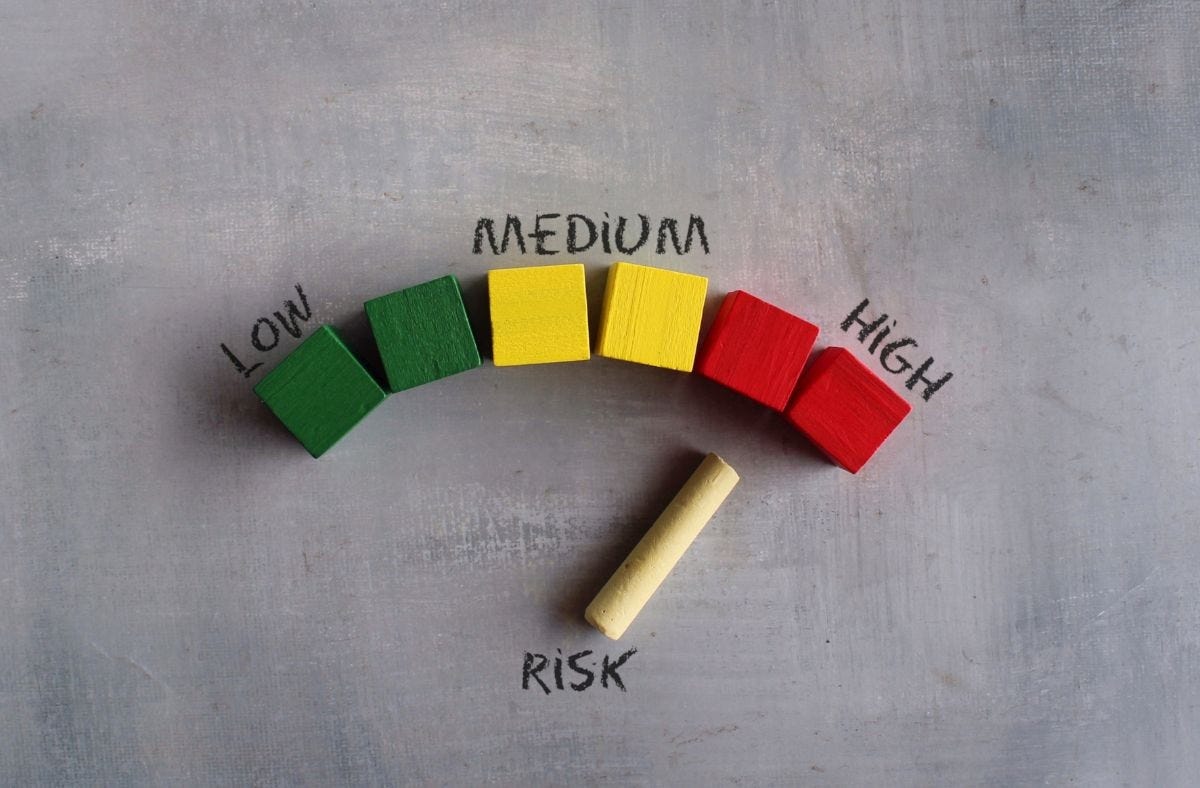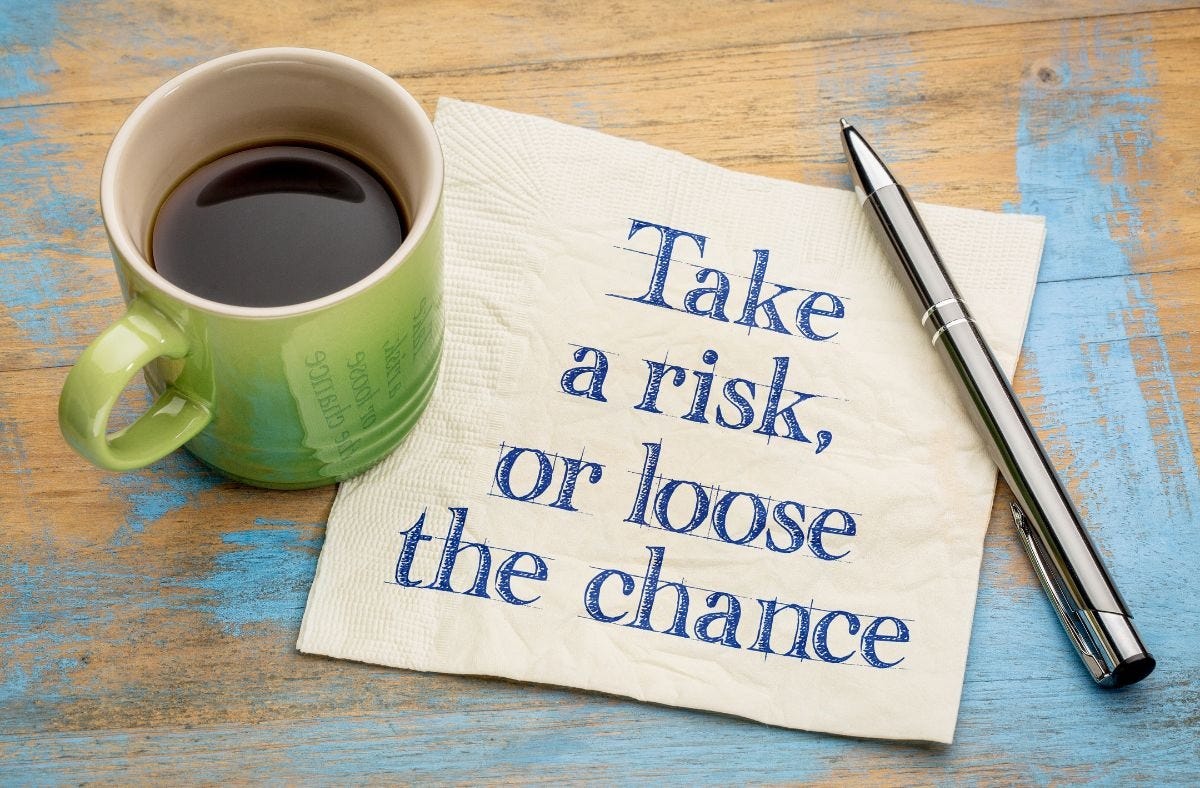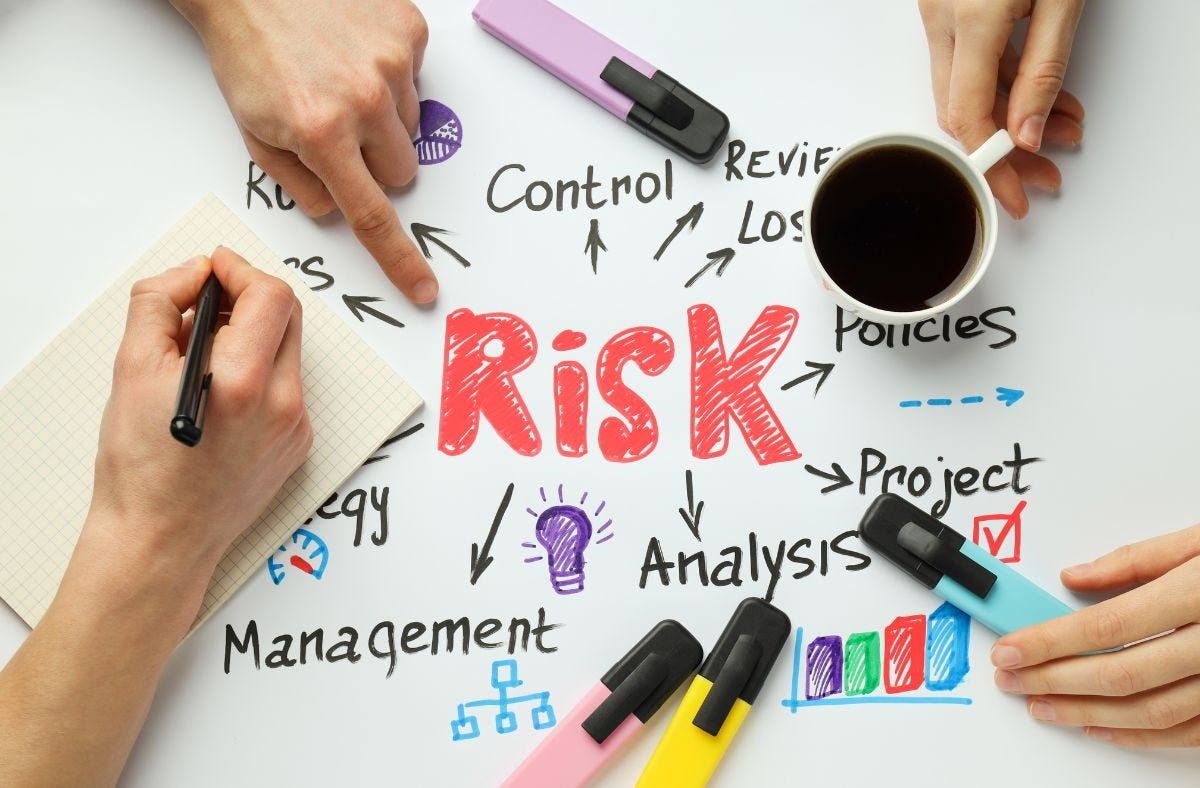Making Decisions by Evaluating Risk vs. Rewards
Our actions are heavily influenced by where we choose to direct our attention.
In the past, I have had some difficulty assessing risks based on the reward I would receive for taking a risk. I have often shied away from even attempting something I considered risky because I didn’t want to make a mistake or end up in worse shape.
It seems that most people are poor at assessing risk and reward.
Are you willing to wager $10 on a roulette wheel or a slot machine despite the fact that the odds of losing are greater than 50%? How about buying lottery tickets? Are those wise decisions based on logic?
On the other hand, how open are you to taking social risks, such as approaching an attractive member of the opposing sex and saying hello?
The danger is nearly minimal, but the potential payout is enormous. Even though this is a near-perfect circumstance with extremely low risk and very high payoff possibilities, few people will take the perceived risk.
Are you making sensible choices in your life? Our actions are heavily influenced by where we choose to direct our attention. If you highlight the positive parts of something while minimizing the negative ones, you are more likely to perform that activity. If you have the opposite mindset, you are unlikely to succeed.
Try the simple exercise below for any major choice you're now facing and see if it gives you a new perspective.
The Positives
Are you thinking about all the ways the risk could pay off? In the scenario above, you could form a new friendship. It might lead to a new job for you. You might meet your spouse or a new golfing partner. Consider all of the potential benefits of taking the risk you intend. Make a list if that helps.
Some people try to downplay the benefits in order to avoid taking action. Strive to be accurate with yourself. Avoid succumbing to anxiousness and making light of the prospective advantages. People who are driven by fear tend to live smaller, less fulfilling lives.
The Negatives
Are you maximizing or limiting the drawbacks of your decision? Are you concerned that you may be shamed or rejected? Or do you tell yourself it's not a big issue and that they'll most likely be flattered? One strategy will take you where you want to go. The other is likely to keep you where you are.
Maximizing the imagined danger is a surefire method to remain trapped. Minimizing the danger will make it much easier to proceed. Again, be honest with yourself. If you're completely honest, you'll notice that you likely have nothing to lose and everything to gain.
Letting Go of the Ego
Imagine that you were utterly unconcerned about what others thought of you. Consider this for a moment. What would you do differently than you now do? How would your life change? Consider the freedom you would have to navigate across the world based on your deepest needs and desires.
You'll be a lot better off if you can learn to laugh at yourself and stop taking things so seriously. You may either laugh or smile later, or you can kick yourself for passing up so many opportunities. Be brave!
So, the next time you're faced with an ego-driven decision, consider the actual risk rather than an imagined risk. The average person's fear of exposing themselves is a major impediment to enjoying everything life offers.
Do your utmost to estimate danger and then take appropriate action accurately. This becomes simpler with each subsequent attempt. Before you realize it, your friends will call you the bravest person they know.
Today’s Quote: "I'd rather regret the risks that didn't work out than the chances I didn't take at all." — Simone Biles




